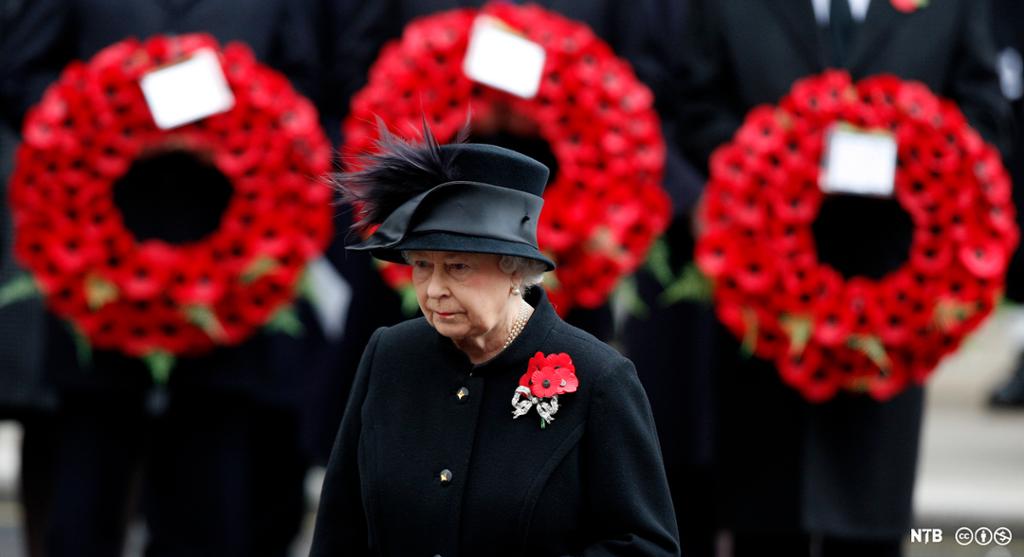Tasks: Dulce et Decorum Est by Wilfred Owen
Read the text below and study the picture. Use the internet to find out more about how the events mentioned in the text are marked.
Honouring Soldiers
In Britain, the armistice that ended World War I is remembered every year on the 11th of November. In addition, the efforts of all soldiers who have participated in conflicts from World War I onwards are remembered on Remembrance Sunday, which is the second Sunday in November. On these occasions, and in the days leading up to them, people wear and decorate with red poppies. This is because red poppies grew on the battlefields in France. The tradition of using red poppies started in 1921. In the beginning, people wore the poppy on Armistice Day and on Remembrance Sunday. In recent years, the period has been expanded, and the poppy is worn and used for decorations during the first two weeks of November.
Since the advent of social media, public figures have come under scrutiny for not wearing a poppy, or for wearing the poppy in 'the wrong way'. Critics, on the other hand, talk about poppy hysteria and poppy fascism.

Sources:
BBC Newsround, 2019, "Why do people wear poppies". Link to article on BBC's webpage.
Kleinfeld, P., 2015, "Britain's Poppy Wars: The Battle for the Meaning of Remembrance Day in the UK". Link to article on the website vice.com.
Work with a partner or in a group. Discuss the following questions.
In the poem 'Dulce et Decorum Est', Wilfred Owen says that we should stop telling children that it is sweet and noble to die for your country. Do you think events such as Armistice Day and Remembrance Sunday portray dying for your country as a patriotic and noble thing?
Do you agree with Wilfred Owen that the idea that it is noble to die for your country is a lie, or is this a sacrifice that should be honoured and commended?
Are there any events in Norway that honour fallen soldiers? Should we have more such events?
Honouring soldiers who have given their lives in battle is an expression of patriotism. What other expressions of patriotism can you think of? Is patriotism a positive or a negative thing?
Write down your answers.
We see an allusion in the title of the poem, and in the final sentence of the poem: "Dulce et decorum est Pro patria mori". This is a quotation from the Roman poet Horace, Ode 3.2 (Valour). Why do you think Owen chose to make this allusion? Does the allusion tell us anything about who the target audience for the poem was?
Write down the rhyme scheme for the poem and explain what the poet achieves by using rhyme. –Pay special attention to the parts of the poem where there is a break in the rhyme pattern.
The poem makes use of simile, metaphor, and descriptive language. Point out some examples and explain what is expressed in these examples.
Below are the names of three British poets who are famous for their descriptions of World War I. Choose one of the poets and find out more about their life and work. Make sure you include examples of their poems in your presentation.
Wilfred Owen
Rupert Brooke
Siegfried Sassoon
Work in groups and make a fact sheet about World War I. The fact sheet must include:
when the war took place
why the war began
who were fighting
who were the most important leaders
where the fighting took place
who won
Include other information you find interesting and relevant. Feel free to use illustrations.
Use Wilfred Owen's poem as inspiration and write an anti-war speech.
Write a poem about an issue you care deeply about.
Make an illustration of the poem 'Dulce et Decorum Est'. Present your illustration to the teacher or the class.
Relatert innhald
Dulce et Decorum Est is a poem by Wilfred Owen, first published in 1919.